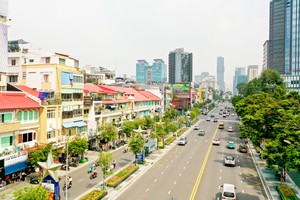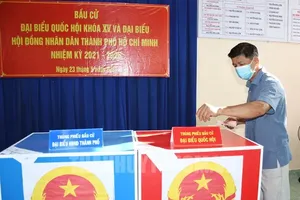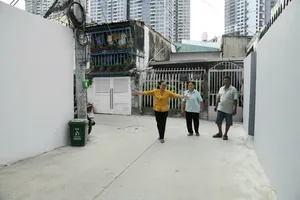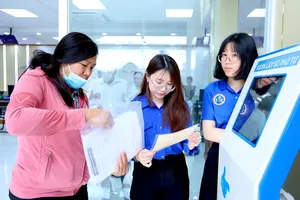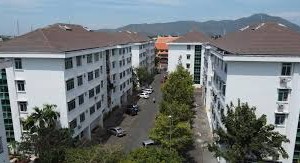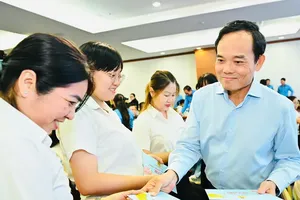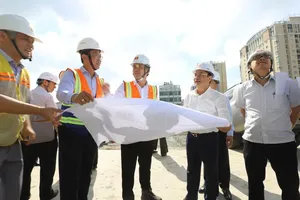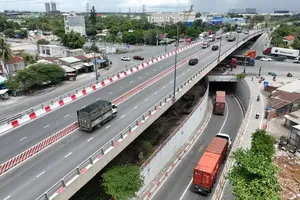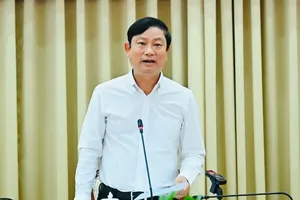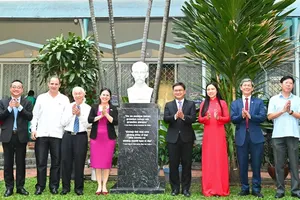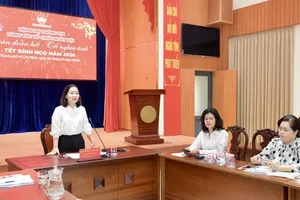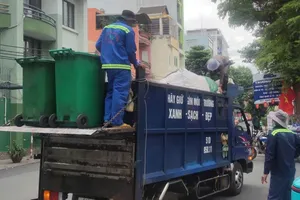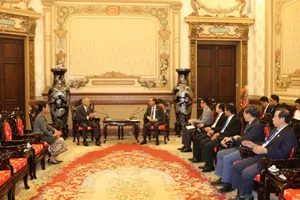The HCMC People's Council today and the Department of Information and Communications and the Ho Chi Minh City Television jointly organize the program ‘’People Ask - The Government Answers’ with the theme ‘Vocational training and job creation’.
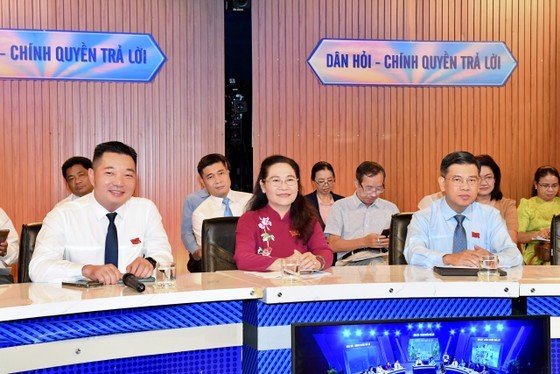 |
Chairwoman of the People's Council of Ho Chi Minh City Nguyen Thi Le (C) attends the program |
Chairwoman of the People's Council of Ho Chi Minh City Nguyen Thi Le, Vice Chairman of Ho Chi Minh City People's Council Nguyen Van Dung and Vice Chairman of Ho Chi Minh City People's Committee Duong Anh Duc were seen at the program.
Supportive policies for workers’ vocational training
Program participants listened to questions related to training to improve the quality of workers' skills, policies to support unemployed workers to learn other jobs for transferring to many other well-paid jobs and policies to support vocational training establishments and connect labor supply and demand.
Answering these above questions, Deputy Director of Ho Chi Minh City Department of Labor, Invalids and Social Affairs Huynh Le Nhu Trang informed that city authorities have paid attention to training to improve workers' skills for many years; subsequently, Ho Chi Minh City has policies to support businesses and workers who need training to improve their capacity and skills.
Employees of small and medium-sized enterprises will be given training costs of up to VND 2 million each for a course. The difference in tuition fees is paid by businesses where workers are working and workers.
Moreover, people with disabilities will be supported with the highest training costs of VND6 million a person per course and meanwhile women and agricultural workers in rural districts will get VND2 million each for pursuing a course in addition to a daily food allowance and a one-time travel allowance if the study location is 15km or more from the place of residence.
In addition, vocational education institutions maintain links with businesses throughout the unit's training process. The City Employment Service Center under the Department of Labor, Invalids and Social Affairs also periodically organizes job exchanges to help connect workers and businesses.
Due to the country’s difficult economic situation with the forecast of the increasing number of unemployed workers, the Deputy Director of the Department of Labor, Invalids and Social Affairs said that in addition to monthly benefits, unemployed workers can also participate in career training to change career and free consultations of jobs. The Department will closely coordinate with the Ho Chi Minh City Labor Federation and local people's committees to promptly support unemployed workers to enjoy policies as per the regulations and introduce other jobs.
Talking about career guidance activities, Director of the Department of Education and Training Nguyen Van Hieu said that in recent years, Ho Chi Minh City's general education institutions have carried out career guidance and orientation. The Department of Education and Training has required educational institutions to pay more attention to advice on career orientation to parents of students to help students choose a suitable job with their abilities and families’ conditions.
Currently, more than Ho Chi Minh City-based 370 colleges, intermediate schools, and vocational education establishments have taken heed of scale expansion and quality improvement as well as diversified occupations and training forms so that everyone has lifelong learning opportunities.
Mechanism for educational and training quality improvement
 |
Vice Chairman of Ho Chi Minh City People's Committee Duong Anh Duc (First ,R) |
At the program, representatives of vocational schools in Ho Chi Minh City also voiced their opinion of preferential loans to invest in building more facilities, and teaching equipment, and opening more professions to meet learners’ demands.
Responding to this content, leaders of the Department of Planning and Investment of Ho Chi Minh City said that for the implementation of the Resolution No. 98/2023/QH15 on piloting a number of specific mechanisms and policies to develop Ho Chi Minh City (the Resolution 98), the municipal People's Committee is developing a resolution on interest rate support for investment projects in priority areas for economic development - society in the city and the Ho Chi Minh City State Financial Investment Company (HFIC) will lend investors of these project. The resolution will be submitted to the city People's Council for approval.
It is expected that education - training and vocational education projects at all grades except for licensed family child care homes will be on the list of institutions getting interest rate support. Newly built schools must meet standards according to current regulations for each corresponding level and field of study.
After the resolution on this policy is issued by the Ho Chi Minh City People's Council, the City People's Committee will decide to assign responsibility for implementation to departments and agencies with specific regulations.
At that time, the Department of Planning and Investment will provide specific instructions to educational institutions that need to invest in facilities to improve the quality of operations.
Vice Chairman of Ho Chi Minh City People's Committee Duong Anh Duc added that the planning of the network of vocational education institutions in Ho Chi Minh City is associated with the national planning of the network of vocational education institutions in the period 2021 - 2030, with a vision of 2021 – 2030 and to 2045
In particular, the city will attract investment projects to establish vocational education and training establishments in automation technology and biotechnology to provide human resources to serve the production and business process of strategic investors according to the Resolution 98.
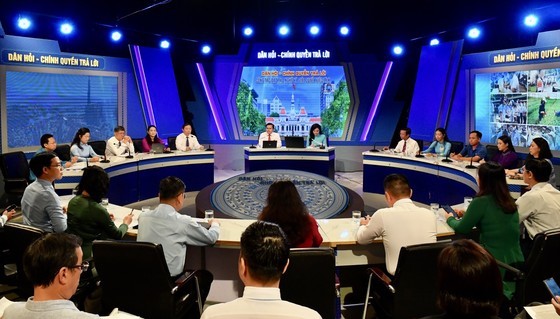 |
At the program |
The Vice Chairman of the municipal People's Committee said that Ho Chi Minh City has issued many mid-term and long-term programs and plans in human resource training with the aim of increasing the rate of trained working workers to 87 percent by 2025 and 89 percent by 2030. He acknowledged that this task will bring many challenges, but the city will make maximum efforts.
At the same time, he asked to develop specific mechanisms and policies to submit to competent authorities for approval to encourage vocational education institutions to build training programs that meet international standards or receive training program transfers from reputable international organizations. In addition, it is necessary to develop preferential policies to encourage businesses and vocational education institutions to proactively link and coordinate vocational training and job creation.
It is necessary to accurately forecast the labor supply and demand situation
Speaking at the meeting, Head of the Department of Culture and Society of the HCMC People’s Council Cao Thanh Binh said that Ho Chi Minh City always focused on the management of the network of vocational education establishments. Employment and social protection are always important policies in the social security system, aiming to create sustainable jobs and create equal opportunities for workers.
Since then, the Head of the Cultural and Social Committee of the Ho Chi Minh City People's Council requested responsible agencies to implement solution groups to develop vocational education policies creating opportunities for everyone to access vocational education services.
In addition, these bodies should focus on building a system connecting inter-provincial, inter-regional and international labor supply and demand so that the employment exchange floor achieves optimal efficiency.
Last but not least, relevant agencies must adopt specific mechanisms and policies to encourage vocational education institutions to build training programs that meet international standards or receive training programs transferred from qualified international organizations.
The Ho Chi Minh City People's Council will join in building mechanisms, policies, and projects to make vocational training and job creation in the city more effective.
